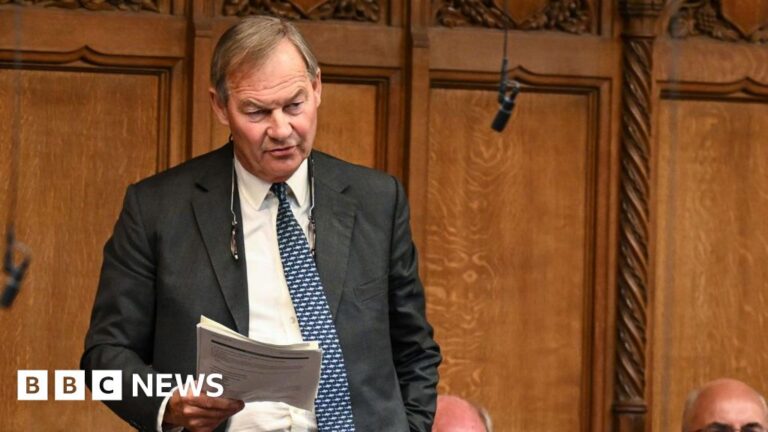Here is the plain text result:
Since President Trump’s first term, Brad S. Karp, the chairman of the law firm Paul, Weiss, Rifkind, Wharton & Garrison, championed himself as a bulwark against what he saw as an unlawful and unpredictable presidency.
Mr. Karp, who has a long history of fund-raising for Democrats, sought to unite major law firms in “a call to arms” to fight Mr. Trump in court on issues like his administration’s policy of separating migrant children from their parents.
He hosted a “Lawyers for Biden” fund-raiser in 2023, and one of his top partners prepared Vice President Kamala Harris for her debates with Mr. Trump.
So it was not surprising that Mr. Trump targeted Paul Weiss with an executive order last week that created a potential existential threat for the firm, although the order was legally dubious and undercut fundamental principles of the justice system.
But on Wednesday, Mr. Karp walked into the Oval Office around 8:30 a.m., leaving behind the adversarial approach.
Now, he wanted to make a deal.
A day later, Mr. Trump announced that Mr. Karp had agreed to pledge $40 million in pro bono legal services to issues the president has championed, including a task force being run by the Justice Department aimed at combating antisemitism “and other mutually agreed projects.”
The White House said the firm had committed to stop using diversity, equity and inclusion policies. And Mr. Trump said Mr. Karp had acknowledged to him that a former partner of the firm who had worked as a prosecutor in Manhattan and had pushed for Mr. Trump to be charged criminally had committed “wrongdoing.” These assertions appear inconsistent with a copy of the statement that Mr. Karp shared with his firm.
In deciding to bend to Mr. Trump, Mr. Karp likely saved his law firm, which had $2.63 billion in revenue last year and represents corporate clients like Exxon Mobil and Apollo Global Management, from hemorrhaging clients and lawyers.
But in doing so, Mr. Karp, who had positioned himself as a spokesman and advocate for the legal profession, left other firms even more vulnerable to Mr. Trump’s retribution campaign by demonstrating that his intimidation tactics could lead even a powerhouse like Paul Weiss to make public concessions, according to interviews with lawyers at other firms and legal experts.
In fact, a White House official said on Friday that despite the deal reached with Paul Weiss, Mr. Trump would continue to target law firms with executive orders, including some the president could sign as early as next week.
The deal, while supported by the vast majority of the firm’s partners, also drew swift condemnation from lawyers outside the firm and critics of Mr. Trump.
And while many of the firm’s clients were relieved by the deal, some senior lawyers at large financial institutions began to privately express dismay, two people with knowledge of the matter said. Some of these lawyers suggested they would consider pulling business from the firm.
Mr. Karp’s decision left many in the legal world, including some in his own firm, reeling, concerned that other firms would now face a choice between bowing to Mr. Trump or abandoning their principles or political beliefs to avoid financial calamity.
Before reaching the deal, Mr. Karp, who has led Paul Weiss for nearly two decades, talked to some of the firm’s 200 partners to weigh their options, according to three people with knowledge of the matter. The group decided to seek a meeting with Mr. Trump to try and reach a deal, rather than engage in what could be a drawn-out legal battle, the people said.
Some of the firm’s corporate partners were particularly adamant that the firm should not sue the administration, the people said. That put them at odds with other partners who work on high-profile litigation and had been arguing that the firm should fight, some of whom expressed displeasure internally on Friday that Mr. Karp had settled, according to four people familiar with the matter.
The deal while supported by the vast majority of the firm’s partners, also drew swift condemnation from lawyers outside the firm and critics of Mr. Trump.
And while many of the firm’s clients were relieved by the deal, some senior lawyers at large financial institutions began to privately express dismay, two people with knowledge of the matter said. Some of these lawyers suggested they would consider pulling business from the firm.
Mr. Karp’s decision left many in the legal world, including some in his own firm, reeling, concerned that other firms would now face a choice between bowing to Mr. Trump or abandoning their principles or political beliefs to avoid financial calamity.
In fact, a White House official said on Friday that despite the deal reached with Paul Weiss, Mr. Trump would continue to target law firms with executive orders, including some the president could sign as early as next week.
The firm’s decision, while supported by the vast majority of the firm’s partners, also drew swift condemnation from lawyers outside the firm and critics of Mr. Trump.
In responding to a query from the paper, several other firms, including the powerhouse law firm, moved to distance themselves from the deal, saying they did not condone the firm’s willingness to compromise with Mr. Trump.
By the time Mr. Trump made his announcement on Thursday, there were already signs that Paul Weiss had been burned in making a deal with Mr. Trump.
The copy of the agreement that Mr. Karp shared with Paul Weiss differed in some ways from Mr. Trump’s characterization of the deal in a post on his social media platform, Truth Social.
Although Mr. Trump said the law firm had specifically agreed to not follow any diversity, equity and inclusion policies in its hiring practices, there is no reference to D.E.I. in the agreement that Mr. Karp shared. Mr. Trump has mounted an aggressive campaign against diversity initiatives in the federal government, labeling it as a form of workplace discrimination.
Source link




